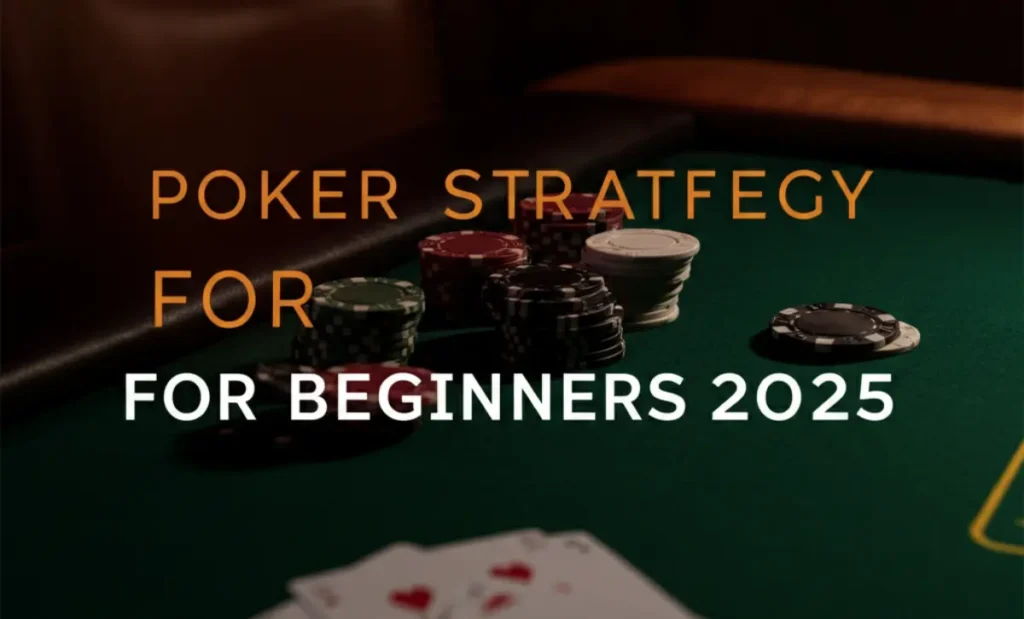Stepping into the world of poker can be both exciting and intimidating. From learning different poker hands to understanding how the betting works, every beginner faces their share of challenges. But with the right approach, anyone can develop a solid poker strategy. If you’re looking for the most practical poker strategy for beginners 2025, this updated guide will help you build smart habits and enjoy the game from day one.
Understanding the Basics: Position and Hand Selection
Success at the poker table often starts before you even play your first hand. Where you sit—your position—matters a lot. Being closer to the dealer button means you get to act later in each round, giving you valuable insight into what your opponents are doing. That edge can help you make better calls and folds, especially as a beginner.
The Power of Position
Always pay attention to your seat at the table. Players in late position can react to everyone else’s decisions. This allows you to bet strong hands and fold weak ones more wisely. Early positions require more caution—so don’t be afraid to wait for great cards.
Starting Hand Fundamentals
One of the most common mistakes new players make is playing too many weak starting hands. Stick to pairs, aces with high kickers, and solid suited connectors. Folding weaker cards early keeps your stack safe and sets the foundation for a winning poker strategy for beginners in 2025.
Key Pre-Flop Poker Strategy for Beginners 2025
The decisions you make before the flop can shape the entire hand. Sticking to a disciplined pre-flop routine will protect your bankroll and help you stay in control.
If you choose to play a hand, raise confidently rather than just calling the blind. Aggressive play often forces weaker hands to fold, narrowing the field. Try to avoid “limping” in, as it brings more opponents into the pot and puts you at a disadvantage. Remember, a strong poker strategy for beginners in 2025 begins with knowing when to be bold.
Navigating Post-Flop Play
The action heats up once the flop is revealed. This is where you put your skills to the test, mixing observation with math and judgment.
Reading the Board
Look for patterns on the board—are there possible flushes or straights? Or is the flop “dry,” making big hands less likely? Assess your odds with each flop and decide how your hand compares to what your rivals might hold.
Continuation Betting
A continuation bet—betting after raising pre-flop—can help you take charge of the hand. Many times, opponents miss the flop completely. However, don’t get carried away. If you face strong raises after your c-bet, consider slowing down; experienced players will spot an over-aggressive style.
The Importance of Bankroll Management
Managing your poker funds is just as important as understanding hands and tactics. Responsible bankroll management will keep your games fun and your losses manageable.
- Set Session Limits: Decide in advance how much money you’re willing to lose in an evening. Walk away if you hit that limit—self-control is a winning trait in poker.
- Choose Sensible Stakes: Match your table limits to your bankroll. Try to keep at least 20–30 buy-ins for the limits you’re playing. This cushion helps handle the swings that come with the game.
Learning to Read Your Opponents
Poker isn’t just a game of math; it’s also about people. Sharpening your poker skills includes paying attention to others at the table.
- Spotting Player Types: Notice who’s frequently betting and who’s only calling. Aggressive players are risk-takers, while passive ones tend to play it safe. Adapting to these styles will give you an edge.
- Betting Patterns: Watch for tells in other players’ bets. Large bets could mean strength or a bluff, while cautious bets might reveal uncertainty. Over time, you’ll learn to read these signals better.
If you want to dive even deeper into strategies, PokerStrategy.com offers a wide range of beginner guides and community advice.
Conclusion: Practice and Patience
Improving your poker strategy for beginners 2025 takes commitment and patience. No one becomes a great player overnight. Focus on making smart decisions, reviewing your games, and learning from every session. Play at lower stakes to start, be open to feedback, and enjoy your progress. The right approach—and a patient mindset—will serve you well as you grow.


